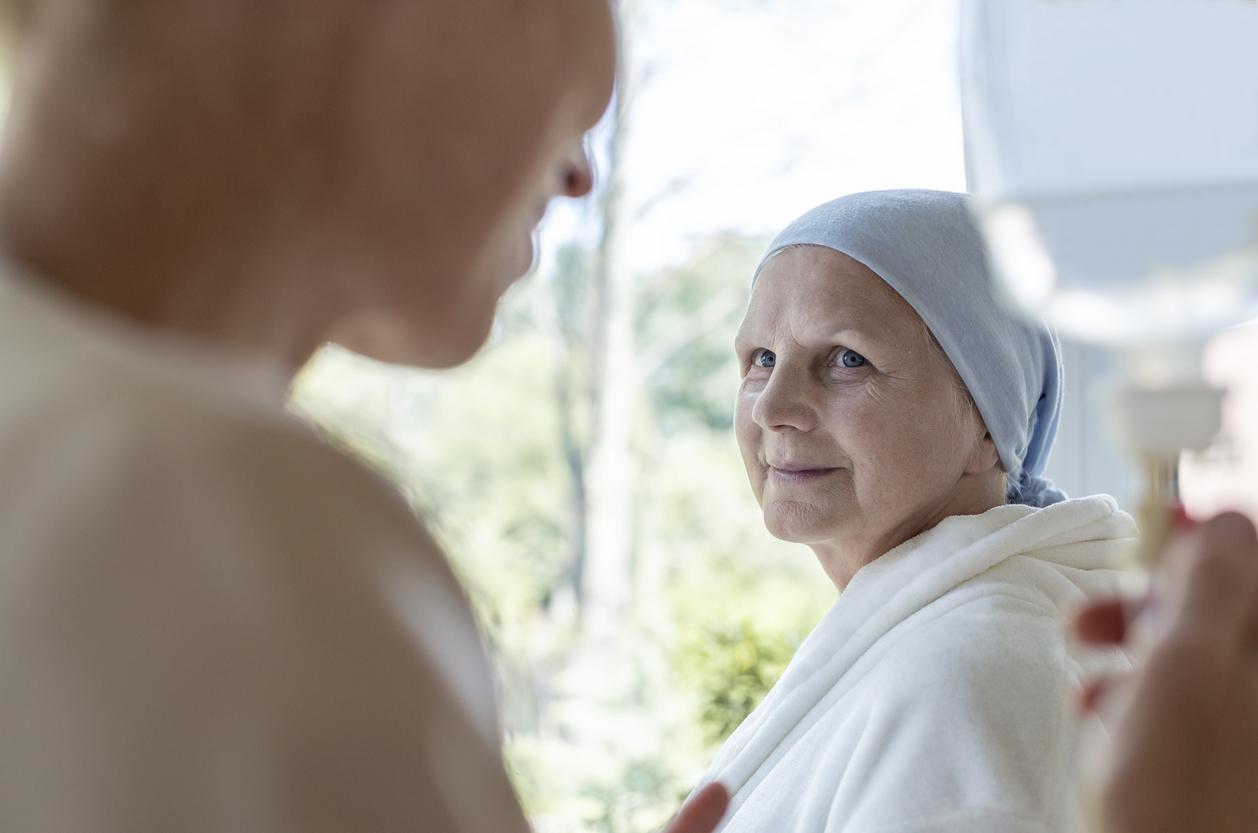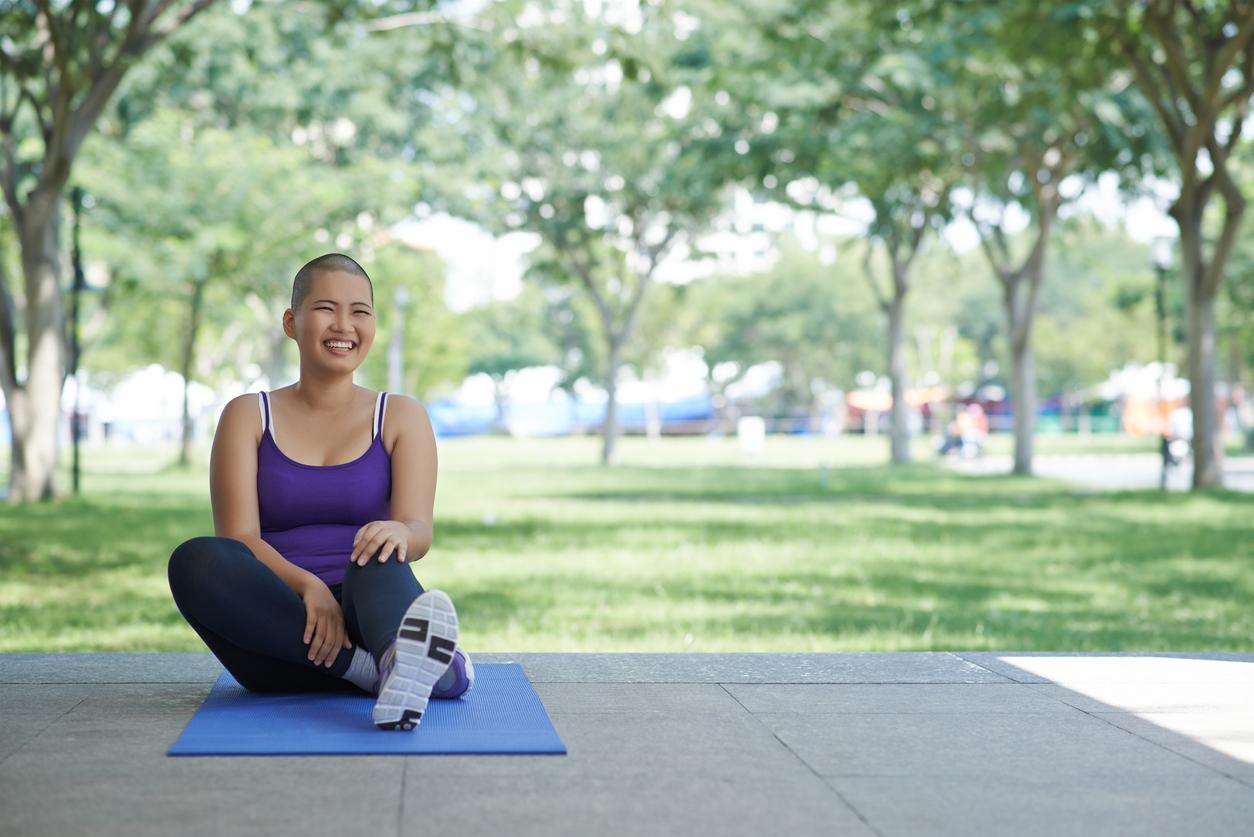The Ethics and Cancer Committee was contacted by a cancer patient, inviting it to comment on the use of therapeutic cannabis in France.

Is authorizing therapeutic cannabis an unethical choice? Examined in all its forms for several months by the politico-medico-intello community, the question of cannabis consumption in a healthcare context has recently been dealt with by the Ethics and Cancer Committee.
Mrs A, a cancer patient at the age of 27, who underwent “numerous interventions (tumorectomy, radiotherapy, prophylactic double mastectomy) or treatments (chemotherapy, hormone therapy)” and “faced with intense and chronic pain that the healthcare team could not stem under good conditions”, improved its quality of life by consuming cannabis “in different forms”. According to her, iProhibiting therapeutic cannabis to patients who cannot be relieved is akin to “a refusal of care”.
Supported by most of her caregivers, but wondering about the ethics of this treatment, she asked the Ethics and Cancer Committee. Because if many patients in the world praise its therapeutic virtues to relieve pain and nausea, its social representation in France and the few scientific studies carried out on its benefits hinder its legalization for medical purposes. Going out of the frames legal and deontological, this question was for the first time potashed by medical and paramedical personnel, philosophers, sociologists, psychologists, lawyers, associations, patients and their families or loved ones.
Favorable to the consumption of non-smoked cannabis
Recognizing that “the scientific literature on the effects of cannabis suffers from methodological problems”, most of the studies being only observational, the Committee considers in his opinion n°35 that he “cannot identify any reason to oppose the use of cannabis by patients who claim to benefit from it, even when this benefit is not demonstrated according to the most rigorous scientific methodologies”.
Nevertheless, the committee believes that it would be safer for patients if these active substances can be consumed “in a form allowing them to avoid smoking it, so as not to be exposed to the deleterious effects of this mode of consumption. It would also be appropriate for this access to be supervised by the health authorities, in order to “provide sick people with the necessary guarantees as to the quality, concentrations and methods of optimal use of cannabis or its active substances”.
And the opinion continues: “Such a framework would also allow sick people to dispense with using parallel circuits to obtain the product from which they benefit. It would also prevent them from risking criminal prosecution because of their consumption”.
What do we really know about the therapeutic virtues of cannabis?
In the United States, where cannabis is legal in some states, almost half of oncologists talk about medical marijuana use to their patients without being sufficiently informed about it, according to a study published in the Journal of Clinical Oncology.
“The scientific evidence supporting the use of medical marijuana in oncology is still very thin, which puts physicians in a very uncomfortable position,” said Dr. Ilana Braun, from the Dana-Farber Institute of Adult Psychosocial Oncology. So far, no randomized clinical trials have looked at the effects of medical marijuana in cancer patients, outside of its effects on nausea, so oncologists rely only on research on the use of cannabis for medical purposes in the treatment of diseases other than cancer.
An effective complement to standard pain treatment
Two-thirds of oncologists surveyed, however, believe that medical marijuana is an effective adjunct to standard pain treatment. In their experience, therapeutic cannabis is just as, or even more effective than conventional treatments against the side effects of chemotherapy such as nausea or lack of appetite.
A study published in The European Journal of Internal Medicine demonstrated that therapeutic cannabis would be effective in treating pain in the elderly. 901 patients over 65 participated in this research. All suffered from pain related to either cancer, Parkinson’s disease, post-traumatic stress, ulcerative colitis (inflammatory bowel disease), or Crohn’s disease.
After six months of treatment with medical cannabis, more than 93% of participants said their pain had decreased by 4 to 8 points on a scale of 1 to 10. More than 70% of patients said they felt overall improvement in their condition.
.















